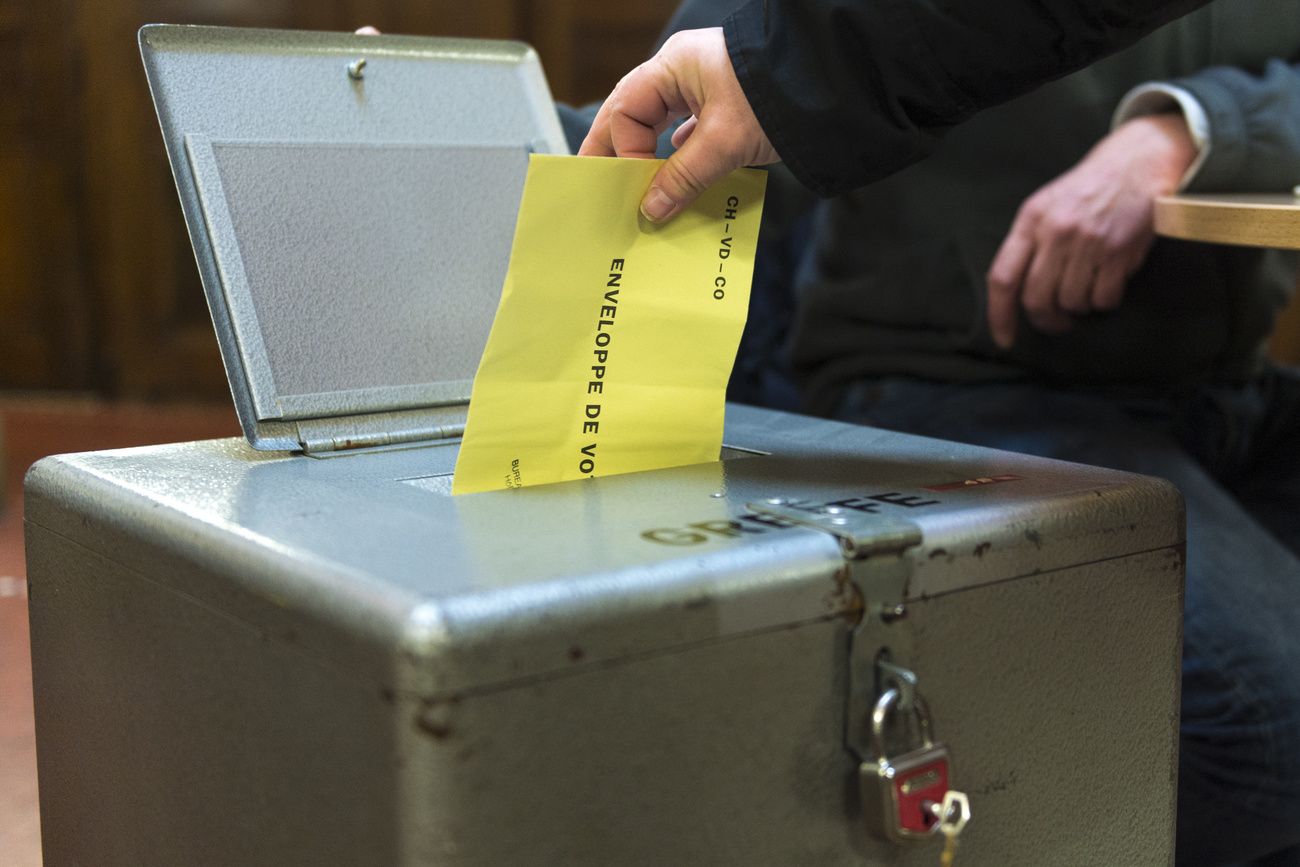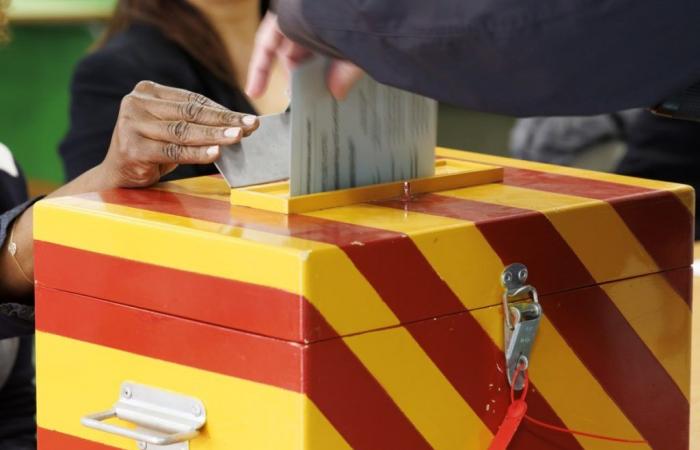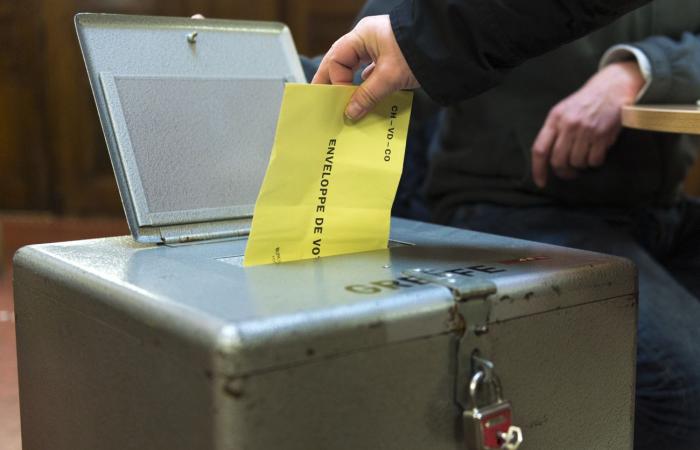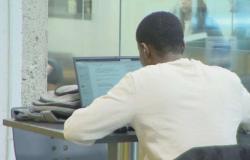Keystone / Salvatore Di Nolfi
Vote without having a Swiss passport? This is possible in around thirty municipalities in Graubünden. But this right is rarely used.
This content was published on
October 2, 2024 – 10:20
SRF / Regional Journal Graubünden
To what extent can foreigners have a say in Swiss politics? The question is old: it has been 175 years since the canton of Neuchâtel introduced the right to vote for foreigners at the municipal level.
Rising trend in German-speaking Switzerland
Since then, this idea – the right to vote for people without Swiss passports – has spread. In French-speaking Switzerland in particular, it is now a reality: foreigners can vote at the cantonal and municipal level in the cantons of Neuchâtel and Jura.
In German-speaking Switzerland, the right to vote for people without a Swiss passport only applies in certain municipalities, although the trend is increasing. The canton of Graubünden, in particular, is considered a bastion of voting rights for foreigners.
Rules that vary
The conditions allowing foreigners to vote vary depending on the cantons and municipalities.
In the canton of Neuchâtelyou must have resided in the canton for at least five years and hold a permanent residence permit (at municipal level, one year of residence is sufficient). In the canton of Jurato vote, you must reside in Switzerland for at least ten years and in the canton for at least one year.
To GrisonsIn Vals, Graubünden, foreigners holding a permanent residence permit can vote after ten years. In Arosa (Graubünden), they can do so after five years. “We feel that people of different nationalities feel at home here. They can participate in the political life of the village, which promotes integration,” says Arosa Mayor Yvonne Altmann with conviction.
In four municipalities ofAppenzell Ausserrhodenforeigners who have lived in Switzerland for ten years and in the canton for five years can vote.
More than 30 municipalities in Graubünden have introduced the right to vote for foreigners and the capital Chur could soon do the same, as its executive recently confirmed.
A little-used right
“People feel taken seriously and can express themselves if they wish, but they are not obliged to do so,” explains Urs Niederegger, municipal secretary of La Punt Chamues-ch. Here too, foreigners have the right to vote, but few use it.
According to Urs Niederegger, only four to six of the approximately 40 members of the foreign community attend the municipal meetings. No C license holder has yet stood for election to the local parliament.
Analogies with women’s suffrage
Although outsiders can have a say in politics, they are reluctant to do so. The participation rate of the foreign population is significantly lower than that of people of Swiss nationality, as a study by the University of Neuchâtel showed last year.
Daniel Kübler, professor of political science at the University of Zurich, believes that this is a typical phenomenon of the expansion of political rights: groups historically excluded from these rights must first learn to identify with them.
The political scientist draws a parallel with the introduction of women’s suffrage: women who grew up before the introduction of the right to vote tended to vote less for a long time. “Many women were not socialized politically to be able to vote,” which is still reflected in voter turnout today.
“Women who were already 20 years old before 1971 are much less likely to exercise their right to vote and run for office nationally.” The situation is similar for women and foreigners: “This is a long-term effect linked to political socialization,” explains Daniel Kübler.
The latter emphasizes that “democracy means having a say in things that concern us”. And when it comes to having a say in a community, the right to vote is extremely important.
Translated from German using DeepL/op
Plus
Plus
Want to know more? Subscribe to our newsletter
Subscribe to our newsletter for the Fifth Switzerland and receive our best articles in your inbox every day.
read more Want to know more? Subscribe to our newsletter
Learn more
Following
Previous

Plus
Who can vote in Switzerland? and who can’t?
This content was published on
30 sept. 2019
As the legislative elections approach, swissinfo.ch examines why a third of the Swiss population will not go to the polls anyway.
read more Who can vote in Switzerland? and who can’t?








